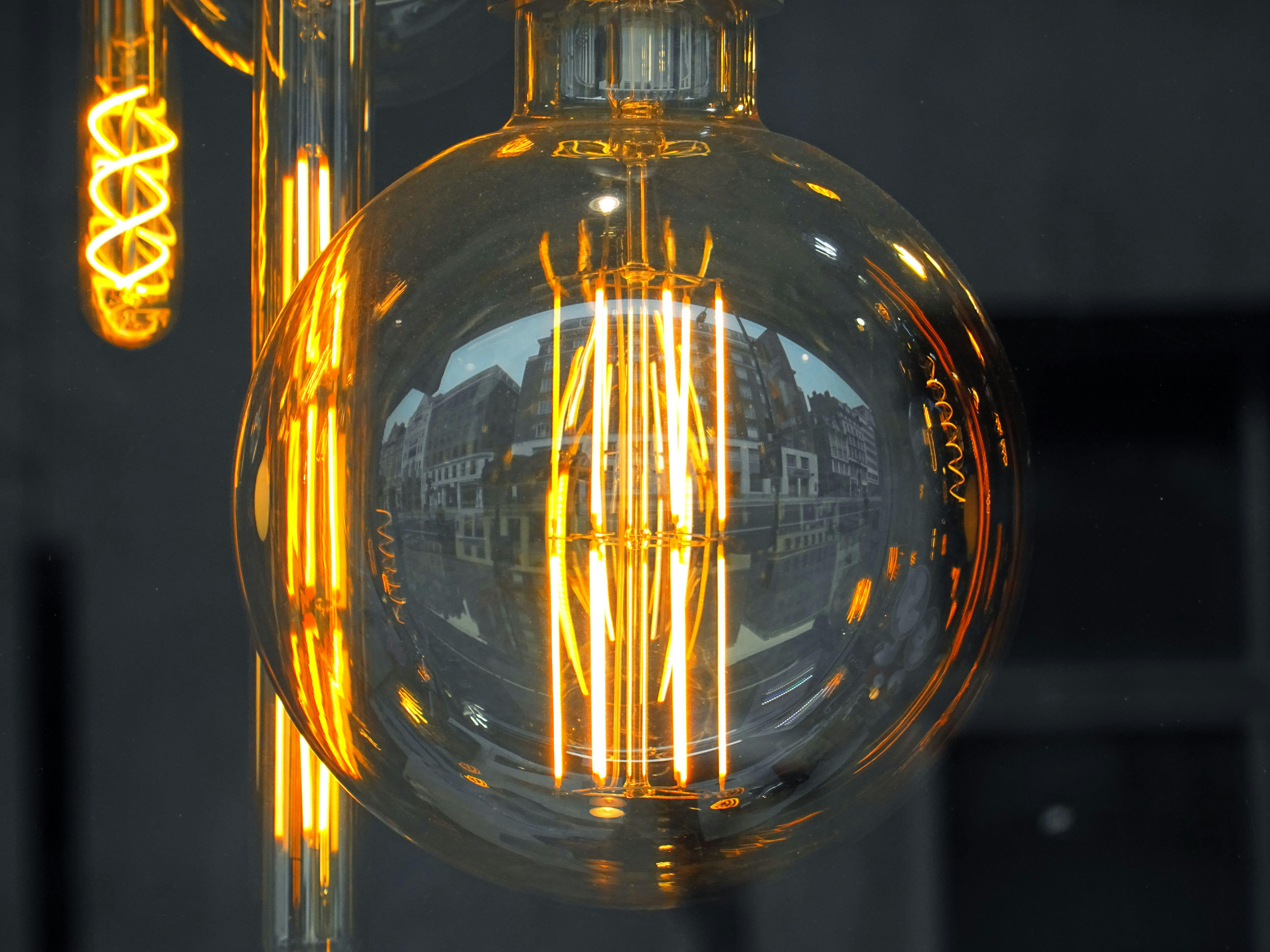“This is not Omaha, Nebraska. This is the big pond where the big fish play for big bucks. There are sharks in these waters and they can cut you in half real quick. So before you dive in, think twice.” .
-Charlie’s Angels
Many of us spend enormous amounts of time and energy trying to convince ourselves and others that we are big fish in small ponds or even bigger fish in bigger ponds. The reality is that most of us are little fish in little ponds. How is that?
Most of us navigate our lives swimming in small ponds, defined by our immediate circumstances and our immediate identity. Many of us have little or no idea what it’s like to see beyond our rational mind, our immediate thoughts, or our entrenched beliefs. Most of the time, we are unable to even consider the possibility that there is another “reality” or “pond” out there.
The reason why we never venture out to see if there is a bigger pond is because
(1) We feel happy, safe, and in control in our little pond (that is, at least we think we are),
(2) We are afraid to look beyond the edges of our little pond; we swim around worried and obsessed trying to make our “pond” work for us, being intimidated by the unknown “ponds” out there, or
(3) we have no interest in exploring other ponds.
Most people fall for reason number two, living in fear of the unknown and the related feelings of loneliness, abandonment and separation which gives them a (false) sense of security. This false security is accompanied by a lack of confidence and faith in even considering swimming in another pond.
Thus, in our little pond we strive to create a life of security, order, control, and perfection. We swim to exhaustion as we experience increasing stress, anxiety, and insecurity, trying to maintain ever greater control.
at different weight
“Something in a koi pond. They’re very zen.” – The proof
What would it be like to venture into a different pond? Venturing into a reality where we would give up the need to control, give up the safe confines of our familiar pond, surrender, trust, experience a new pond in a new way, that is, accept new ways of doing. ing and being, maybe even new ways of swimming without any preconceived notion of “tightness” – just jump in and swim?
What if we left behind our life preservers: our egos, beliefs, preconceptions, ideas, and judgments, and swam with faith, trust, and surrender? What would it take to step into a “new pond experience” at work, at home, at play, or in a relationship? What would it be like to move into a new pond with an open mind and heart, no need to control? What would it be like to swim in this new pond, confident that we won’t drown or lose our way?
The deal is, we can’t think our way to this new pond. We have to take a deep breath, let go and dive in without a life jacket, without resistance, that is, without our familiar and habitual ways of thinking, acting, judging, doubting or medicating in order to feel safe and protected.
Being mindful in your new pond
In our family pond, we generally spend our time swimming in a normal think-judge-react mode or daydreaming while going about our usual daily routines and activities. In our new pond, we will need to be alert, aware, and neutral.
Swimming with this new awareness, we are present in the immediate moment, without judging, without thinking and without reacting, just present and aware. Awareness promotes inner peace, well-being, alertness, and clarity. We are swimming without thinking, without our usual beliefs and thoughts.
In our new pond, we swim into familiar and new experiences with a sense of openness, kindness, service, compassion, and curiosity. In this new pool, we are transformed; we seem to swim free of anxiety, depression, unhappiness, dissatisfaction, loneliness, or deep sadness and longing.
In our new pond, we swim with strength, courage, power, contentment, joy, and possibility. As the shark needs to keep swimming to breathe and access oxygen, in our new pond and daily activities, we must choose to remain present, authentic, and access our heart and soul, providing the “spiritual oxygen” that optimally keeps us alive. , conscious and alert.
Are you ready to dive in?
“Do not be a slave to your own past. Dive into the sublime seas, dive into the depths and swim away, so that you return with self-respect, with a new power, with an advanced experience that will explain and overlook the old” . -Ralph Waldo Emerson
Would you be willing to experience this new pool to experience well-being, possibility, and a sense of grounding?
If so, the first step is to explore your goldfish in your little pond, taking stock of your habits, beliefs, chemical and non-chemical addictions), and self-limiting and sabotaging thoughts that keep your goldfish depressed, repressed, and repressed. . What is your little fish attached to, obsessed with, and motivated by? What drives your little fish to want power, control, recognition and security?
Once you discover what drives your little fish, and you choose to let go of your ego’s needs to control and possess, your little fish begins to morph and morph into a confident, surrendered fish that is ready to swim in another pond.
Swimming, now driven by our heart and soul, we begin to build trust and faith that at every moment we are guided to move in the right direction. We are better able to swim with other fish from a place, not of competition, envy or resentment, but of service, with an attitude of kindness and respect. We experience greater moments of synchronicity and connection with others. In this new pool, our sense of identity comes from a deeper place, not from the place of our limited mind and ego.
swim with your eyes open
In this new pond, we must swim with awareness, always being alert and awake. Teaching swimming provides us with tools and techniques to support our new way of swimming, such as:
We need to be continually aware of our breathing.
We need to allow our vulnerability.
We need to stay away from self-destructive beliefs, illusions and fantasies.
We need to pay attention to what we perceive, feel and experience in our bodies.
We need to trust, surrender and let go of our dogmatic thoughts and beliefs.
We need to constantly express gratitude.
We need to trust our heart and soul to direct us to the right knowledge, the right understanding, and the right action.
We need to be open to change, synchronicity and intuition.
We need to find balance in our sense of self, our finances, relationships, and daily activities.
We need to reconsider (re)prioritize our goals so that they truly support our inner sense of balance, harmony, and well-being (not our ego).
The new pond with clear water.
“Hiccup Hole isn’t just a pond. It’s a symbol… of freedom… and justice… and home, and country, and, and, and… apple pie!” -101 Dalmatians
Moving to a new pond and keeping our water clean, clear, and life-supporting means allowing our “neutral mind” and knowing when our neutral mind is being clouded by our “rational and logical” mind. Our neutral mind is awake, alert, clear and aware. Our “rational and logical” mind is entangled with worries, goals, judgments, envious comparisons, constant talk and “occupations”.
The new pool of clear water at work, home, play, and relationships is calm, quiet, peaceful, and relaxed—in mind, body, and breath. Here, we are awake and vigilant as we swim. We are open to new experiences, increased awareness, and the support of our hearts and souls. We are mentally and emotionally at peace.
In this new place, there is no bigger pond, no better pond, just a pond. In this new place, we swim in the stillness of the moment, with our breath, free from the hustle and bustle of our rational mind’s activities and annoyances. In this new place we transcend time and space while being present in time and space.
So some questions for self-reflection are:
· Do you consider yourself a big fish in a small pond? What is it like to constantly maintain that image?
·Do you always compete with the other fish in your pond? Because?
Are you calm and content in your pond or are you always looking for a bigger pond?
· Is the water in your pond clear, healthy and sustainable? If not, why not?
·Do you need “chemicals” to keep your pond healthy?
How would you describe life in your pond? Balanced, peaceful and harmonious or stressful, rough and stormy?
Are your eyes clear while swimming?
What kind of fish are you? Because?
Are you constantly looking for bait or being baited? How is that?
·Is your pond flooded with pond scum? Who or what explains this? How can you clean your pond so that it is sustainable and life-affirming?
The roots of a lotus are in the mud; the stem grows through the water and the flower lies on top of the water, basking in the sunlight. This pattern of growth signifies the soul’s progress from the primeval mire of materialism, through the waters of experience, and into the bright sunlight of illumination.



